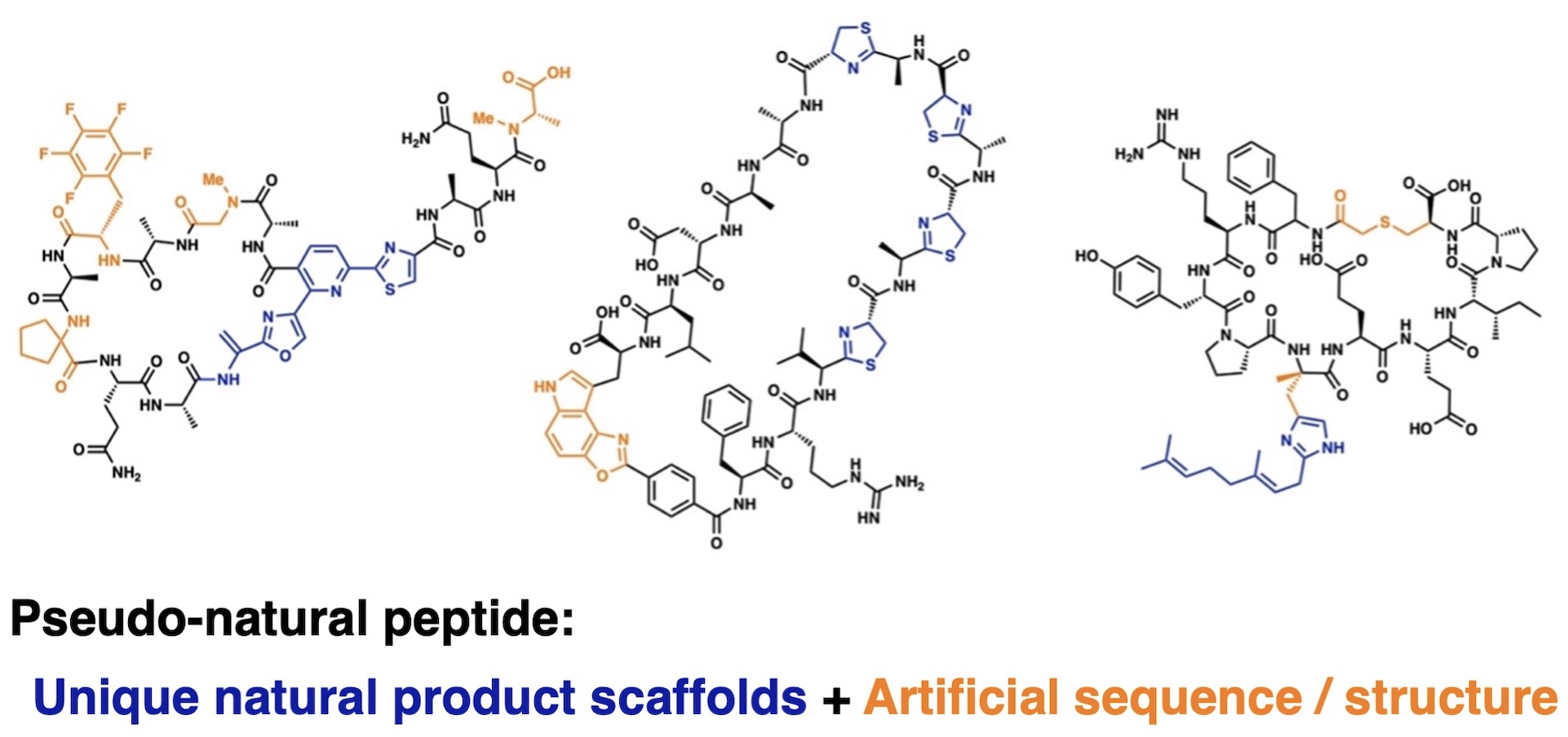Creating pseudo-natural peptides with tailor-made bioactivities
- Discovering peptide-modifying enzymes catalyzing new chemistries
- We mine microbial genomes to discover novel enzymes that construct the unique peptide scaffolds found in natural products. The biochemical characterization of these enzymes to understand their catalytic mechanisms has revealed their potential to construct structurally diverse pseudo-natural peptides.
- Synthesizing pseudo-natural peptides in vitro
-
We are developing technologies to biosynthetically synthesize pseudo-natural peptides by artificially modifying the ribosomal translation system in vitro, in combination with various organic and enzymatic reactions. This approach allows us to expand the repertoire of unique scaffolds available for pseudo-natural peptide development and enables new molecular designs.

- Architecting peptides with desired bioactivity
- We are establishing a high-throughput in vitro selection system capable of constructing and screening libraries composed of over one trillion distinct pseudo-natural peptide species. This in vitro display system facilitates the discovery of high-affinity peptide ligands for specific target proteins, many of which can modulate target function. These pseudo-natural peptide ligands serve as promising candidates—and as a foundation—for functional and therapeutic applications.
- Understanding the significance of unique scaffolds in peptidic natural products
- We are investigating why the unique scaffolds characteristic of peptidic natural
products are critical for their bioactivity, and how to best incorporate them into
pseudo-natural peptides. By elucidating the chemical basis of these scaffolds, we aim to
guide the rational design of novel pseudo-natural peptide agents.

Many peptides produced by microorganisms—so-called peptidic natural
products—feature noncanonical structural motifs that are absent in typical
proteins or peptides. These unique architectures often drive favorable pharmacokinetic
and physicochemical properties, as well as their potent biological activities.
With the idea that such natural product-derived nonproteinogenic structures can serve as
valuable building blocks even in developing artificial bioactive peptides, we aim at
designing new-to-nature peptide agents having the essence of natural products. We refer
to these as “pseudo-natural peptides“.
Our research focuses on establishing technologies for the facile and versatile synthesis
of such peptide, ultimately enabling the creation of pseudo-natural peptide agents with
tailor-made bioactivities. Through this work, we aim to contribute to advances in
chemical biology, synthetic chemistry, biotechnology, and pharmaceutical science.

Our current research programs on pseudo-natural peptides include:
Creating artificial peptides with diverse and fascinating functions
Peptides carry out a wide range of important functions in biological systems, highlighting their vast potential as versatile functional molecules. Inspired by this, we envision that peptides can be engineered not only to replicate functions evolved in nature, but also to acquire entirely novel activities. By integrating various types of peptide chemistry and computational methodologies, we aim to create artificial peptides with unprecedented and intriguing functionalities.

